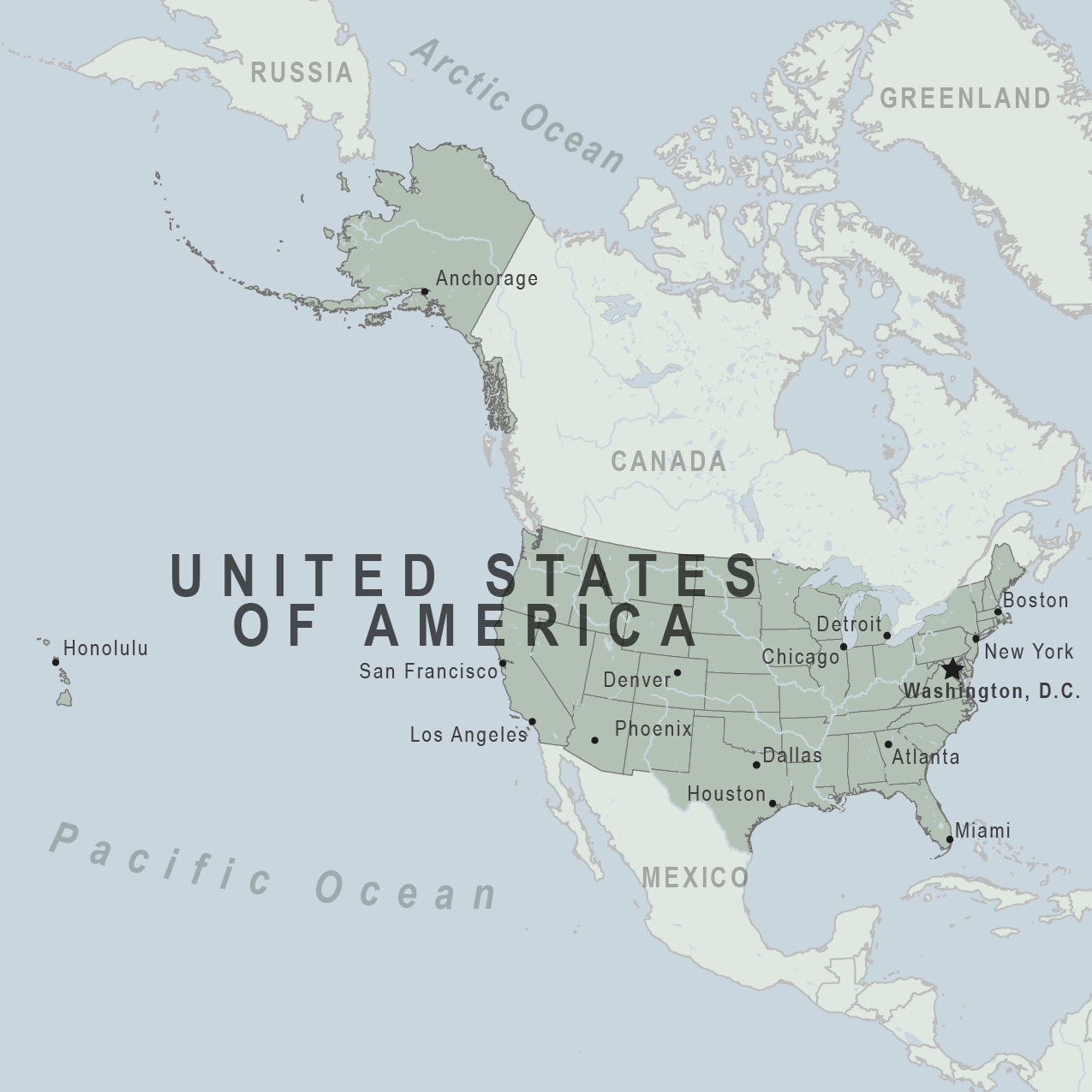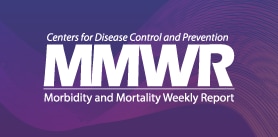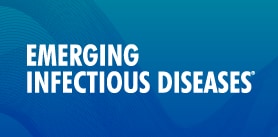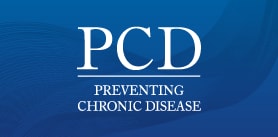You are using an outdated browser. Upgrade your browser today or install Google Chrome Frame to better experience this site.

United States Traveler View

Novel Coronavirus Travel Information
- Level 3: Cruise Ship Travel
- Coronavirus and Travel in the United States
For general advice about your trip to the United States, see these additional resources:
- See the US Health Alert Network website for information about important public health issues in the United States.
- US Department of State’s Travel.State.gov - including information on visas for foreign citizens traveling to the United States.
- US Customs and Border Protection
- Transportation Security Administration
Map Disclaimer - The boundaries and names shown and the designations used on maps do not imply the expression of any opinion whatsoever on the part of the Centers for Disease Control and Prevention concerning the legal status of any country, territory, city or area or of its authorities, or concerning the delimitation of its frontiers or boundaries. Approximate border lines for which there may not yet be full agreement are generally marked.
Other Destinations
If you need help finding travel information:
Message & data rates may apply. CDC Privacy Policy
File Formats Help:
- Adobe PDF file
- Microsoft PowerPoint file
- Microsoft Word file
- Microsoft Excel file
- Audio/Video file
- Apple Quicktime file
- RealPlayer file
- Zip Archive file
We’re sorry, this site is currently experiencing technical difficulties. Please try again in a few moments. Exception: request blocked
#PrepYourHealth: Tips for Holiday Travel

Holiday travel often includes visiting loved ones or taking a vacation. Whether you’re seeking a winter wonderland or an escape from subzero temperatures, follow these travel tips to stay healthy and safe during the holiday travel season.
Before Your Trip
No matter where you plan to travel, check CDC’s destination pages for travel health information . These pages include information about
- vaccines and medicines you may need, and
- diseases or health risks that are a concern at your destination.
Get up to date with your COVID-19 vaccines and seasonal flu vaccine. CDC recommends getting the flu vaccine every year.
Get up to date on routine vaccines. Routine vaccinations protect you from infectious diseases such as measles that can spread quickly in groups of unvaccinated people. Many diseases prevented by routine vaccination are uncommon in the United States but common in other countries.
Prepare a travel health kit that includes personal needs, especially those items that may be difficult to find at your destination. Take enough of your prescription and over-the-counter medicines to last your entire trip, plus extra in case of travel delays. You may also want to pack insect repellent , sunscreen (SPF 15 or higher), aloe, alcohol-based hand sanitizer, water disinfection tablets, and important paperwork like your health insurance card.
Make sure you have a plan for getting health care during travel . Find out if your health insurance covers medical care abroad. Travelers are usually responsible for paying hospital and other medical expenses out of pocket at most destinations. Consider buying additional insurance that covers health care and emergency evacuation, especially if you will travel to remote areas.
During Your Trip
Choose safe transportation. Always wear your seat belt. If you are traveling with children ages 12 and younger, make sure they are properly buckled in a car seat, booster seat, or seat belt—whichever is appropriate for their age, weight, and height—in the back seat.
Motor vehicle crashes are the leading cause of death among healthy travelers. Be alert when crossing the street, especially in countries where people drive on the left side of the road. Find out other steps you can take to stay safe on the roads.
Protect yourself from the sun. Apply sunscreen with SPF 15 or higher when traveling. Protecting yourself from the sun isn’t just for tropical beaches. You can sunburn even if it’s cloudy or cold. You are at the highest risk for ultraviolet light exposure during summer months, near the equator, at high altitudes, and between 10 a.m. to 4 p.m.
Stay alert in crowded areas. Does your holiday travel involve markets, festivals, or other activities that involve a large number of people at the same place (mass gathering)? If so, learn some tips to stay safe at a mass gathering.
Considerations for cold weather travel
Wear warm clothing in several loose layers when traveling in cold weather or climates. Learn practical skills and lessons like how to prevent hypothermia and frostbite .
Considerations for warm weather travel
If you are traveling in hot weather or to a hot climate, wear loose, lightweight, light-colored clothing.
Your chances of getting heat stroke, heat exhaustion, or other heat-related illness during travel depend on your destination, activities, level of hydration, and age. The more active you are in high temperatures, the more likely you are to get a heat-related illness. Learn how to prevent heat-related illness .
Use insect repellent and take steps to avoid bug bites. Bugs, including mosquitoes, ticks, and flies, can spread diseases such as Zika, dengue, Lyme, and others. These bugs are typically more active during warm weather. Check your destination’s page to determine what you need to do to protect yourself from diseases spread through bug bites, including medications or vaccines when recommended.
After Your Trip
If you recently traveled and feel sick , particularly if you have a fever, talk to a healthcare professional. Tell them about your travel. Be prepared to answer questions about your vaccination history, destination(s), reasons for traveling, itinerary, and other aspects of your trip.
- Travelers’ Health | CDC
- Traveler Advice | Travelers’ Health | CDC
- COVID-19: International Travel to and from the United States | CDC
- Cruise Ship Travel During COVID-19| CDC
Thanks in advance for your questions and comments on this Public Health Matters post. Please note that CDC does not give personal medical advice. If you are concerned you have a disease or condition, talk to your doctor.
Have a question for CDC? CDC-INFO ( http://www.cdc.gov/cdc-info/index.html ) offers live agents by phone and email to help you find the latest, reliable, and science-based health information on more than 750 health topics.
Post a Comment
Your email address will not be published. Required fields are marked *
To receive email updates about this page, enter your email address:
A .gov website belongs to an official government organization in the United States.
A lock ( ) or https:// means you've safely connected to the .gov website. Share sensitive information only on official, secure websites.

Featured Topics
Find diseases and conditions; healthy living; workplace safety; environmental health; injury, violence and safety; global health; travelers’ health and more.

News All News
- SEP 10 Transcript for Vital Signs Telebriefing: Suicide risk is tied to local economic and social conditions
- SEP 09 New CDC Report Shows Suicide Risk Tied to Local Economic and Social Conditions
- SEP 06 CDC warns of recalled eggs sold in Illinois, Michigan, and Wisconsin, linked to Salmonella outbreak
- SEP 06 CDC Confirms Human H5 Bird Flu Case in Missouri
- SEP 05 Youth E-Cigarette Use Drops to Lowest Level in a Decade
Scientific Journals

MMWR is a weekly epidemiological digest that provides timely, reliable, objective, and useful public health information.

EID is a monthly peer reviewed journal covering infectious diseases with emphasis on disease prevention, control, and elimination.

PCD is a peer reviewed journal covering research, public health findings, innovations, and practices on chronic diseases.

Science at CDC
To make science and data easier for broad audiences to interpret, CDC is translating science into practical, easy to understand policy by clarifying and presenting scientific language so that anyone can understand it and standardizing guideline development across the agency.
- CDC Moving Forward
- Advancing Science & Health Equity
Memorial Sloan Kettering Library

The physical space of the MSK Library is permanently closed to visitors as of Friday, May 17, 2024. Please visit this guide for more information.
Public Health
- U.S. CDC Travel Health Notices
What are Travel Health Notices
Current travel health notices, cdc travel notices, cdc international outbreaks.
- Disease Surveillance Resources
- Disaster Preparedness
- MSK Resources
- U.S. Public Health Emergencies
- Global Public Health Emergencies
- West Nile Virus
- Tuberculosis
- Valley Fever
- Monkeypox (MPOX)
- Viral Hemorrhagic Fevers
- Vector-Borne Diseases
- History of Measles
- Measles Vaccination
- 2024 U.S. Measles Outbreak
- Measles in the U.S.
- Measles in New York
- Global Measles Outbreaks
- HIV/AIDS Research
- HIV/AIDS & Cancer
- Information for Providers and First Responders
- Healthy People Initiative
- Health Disparities
- Life Expectancy
Travel Health Notices inform travelers and clinicians about current health issues that impact travelers’ health, like disease outbreaks, special events or gatherings, and natural disasters, in destinations around the world.
Extreme Level 4 (Red)
Warning level 3 (orange), alert level 2 (yellow), watch level 1 (green).

Currently there are no Travel Health Notices at this level.

Global Polio January 4, 2024
Some international destinations have circulating poliovirus. before any international travel, make sure you are up to date on your polio vaccines., diphtheria in niger december 21, 2023.
There is an outbreak of diphtheria in Niger. If you are traveling to an affected area, you should be up to date with your diphtheria vaccines.
Diphtheria in Nigeria December 21, 2023
There is an outbreak of diphtheria in several states in Nigeria. Vaccination against diphtheria is essential to protect against disease. If you are traveling to an affected area, you should be up to date with your diphtheria vaccines.
MPOX in in the Democratic Republic of the Congo December 7, 2023
There is an outbreak of mpox in 22 out of 26 provinces, including urban areas, in the DRC.

Diphtheria in Guinea December 7, 2023
There is an outbreak of diphtheria in several districts in Guinea. Vaccination against diphtheria is essential to protect against disease. If you are traveling to an affected area, you should be up to date with your diphtheria vaccines.
Chikungunya in Burkina Faso November 9, 2023
There is an outbreak of chikungunya in Burkina Faso. Several districts have reported cases.
Yellow Fever in Nigeria May 04, 2022
There is an outbreak of yellow fever in Nigeria. Travelers to Nigeria should take steps to prevent yellow fever by getting vaccinated at least 10 days before travel and taking steps to prevent mosquito bites.

Updated Dengue in Asia and the Pacific Islands January 22, 2024
Dengue is a risk in many parts of Asia and the Pacific Islands. Some countries are reporting increased numbers of cases of the disease. Travelers to Asia and the Pacific Islands can protect themselves by preventing mosquito bites.
Updated Dengue in Africa and the Middle East January 22, 2024
Dengue is a risk in many parts of Africa and the Middle East. Some countries are reporting increased numbers of cases of the disease. Travelers to Africa and the Middle East can protect themselves by preventing mosquito bites.
Updated Dengue in the Americas January 22, 2024
Dengue is a risk in many parts of Central and South America, Mexico, and the Caribbean. Some countries are reporting increased numbers of cases of the disease. Travelers to the Americas can protect themselves by preventing mosquito bites.
New Western Equine Encephalitis Virus in Argentina January 12, 2024
There are reports of confirmed and probable human cases of Western equine encephalitis virus (WEEV) infection in rural areas of several provinces in Argentina with WEEV activity in horses.
Rocky Mountain Spotted Fever in Mexico December 11, 2023
There have been reports of Rocky Mountain spotted fever (RMSF) in people traveling to the United States from Tecate, in the state of Baja California, Mexico.
Updated Global Measles November 20, 2023
Many international destinations are reporting increased numbers of cases of measles.
XDR Typhoid Fever in Pakistan June 16, 2023
An outbreak of extensively drug-resistant (XDR) typhoid fever in Pakistan is ongoing. Extensively drug-resistant infections do not respond to most antibiotics.
Salmonella Newport in Mexico September 08, 2022
Some travelers who have spent time in Mexico have been infected with multidrug-resistant (MDR) Salmonella Newport.
- << Previous: Public Health Resources
- Next: Disease Surveillance Resources >>
- Last Updated: Jun 4, 2024 12:27 PM
- URL: https://libguides.mskcc.org/publichealth
Advertisement
Supported by
What to Know About the C.D.C. Guidelines on Vaccinated Travel
In updated recommendations, the federal health agency said both domestic and international travel was low risk for fully vaccinated Americans. But travel remains far from simple.
- Share full article

By Ceylan Yeginsu
The Centers for Disease Control and Prevention updated its guidance for fully vaccinated Americans in April, saying that traveling both domestically and internationally was low risk.
The long-awaited recommendations were issued by federal health officials after a series of studies found that vaccines administered in the United States were robustly effective in preventing infections in real-life conditions.
One is considered fully vaccinated two weeks after receiving the single dose of the Johnson & Johnson vaccine, or two weeks after receiving the second dose of the Pfizer-BioNTech or Moderna shots.
If you decide to travel, you might still have some questions. Here are the answers.
Will I still need to wear a mask and socially distance while traveling?
Yes. Under federal law, masks must be worn at airports in the United States, onboard domestic flights and in all transport hubs. The C.D.C. says that as long as coronavirus measures are taken in these scenarios, including mask wearing, fully vaccinated Americans can travel domestically without having to take a test or quarantine, although the agency warns that some states and territories may keep their local travel restrictions and recommendations in place.
For those wishing to travel internationally, a coronavirus test will not be required before departure from the United States unless mandated by the government of their destination. Vaccinated travelers are still required to get tested three days before travel by air into the United States, and are advised to take a test three to five days after their return, but will not need to self-quarantine.
Can I go abroad?
Yes, but only to countries that will have you.
More than half the world’s countries have reopened to tourists from the United States, including the countries of the European Union , which on June 18 added the United States to its “safe list” of countries, meaning that American travelers can now visit. While the European Union aims to take a coordinated approach to travel this summer, member states will be allowed to set their own requirements for travelers from individual countries based on their own epidemiological criteria, which means they may require testing or vaccination.
Some places like Turkey, Croatia and Montenegro had already been welcoming Americans with negative test results. Greece joined that growing list in May, ahead of most European countries, opening to fully vaccinated tourists and other foreigners with a negative test.
Many Caribbean nations have reopened to American tourists, but each has its own coronavirus protocols and entry requirements.
Here’s a full list of countries Americans can currently travel to.
What about domestic travel? Is it free and clear to cross state borders?
If you are fully vaccinated, the C.D.C. says you can travel freely within the United States and that you do not need to get tested, or self-quarantine, before or after traveling. But some states and local governments may choose to keep travel restrictions in place, including testing, quarantine and stay-at-home orders. Hawaii , for instance, still has travel restrictions in place.
Before you travel across state lines, check the current rules at your destination.
How are they going to check that I’m fully vaccinated?
Right now, the best way to prove that you have been vaccinated is to show your vaccine card .
Digital vaccine and health certificates showing that people have been vaccinated or tested are in various stages of development around the world and are expected, eventually, to be widely used to speed up travel.
The subject of “ vaccine passports ” is currently one of the most hotly debated topics within the travel industry, with questions over the equity of their use and concerns over health and data privacy.
In early April, Gov. Ron DeSantis of Florida issued an executive order that would ban local governments and state businesses from requiring proof of vaccination for services.
And in March, the European Union endorsed its own vaccine certificate , which some countries are already using, with more expected to adopt it by July 1.
But what about my kids? What’s the guidance on traveling with unvaccinated people?
The C.D.C. advises people against travel unless they have been vaccinated. If you must travel, the agency recommends testing one to three days before a trip and following all coronavirus guidance at your destination.
In May, the F.D.A. expanded its emergency use authorization of the Pfizer-BioNTech coronavirus vaccine to include adolescents between 12 and 15 years of age.
All air passengers aged two and older coming into the United States, including fully vaccinated people, are required to have a negative Covid-19 test result taken no more than three days before they board their flight.
What is my moral obligation to the places I visit where most people are not vaccinated?
The United States inoculation rollout has been among the fastest in the world, but there is a stark gap between its rapid rollout and the vaccination programs in different countries. Some nations have yet to report a single dose being administered.
Many countries are currently seeing a surge in new cases and are implementing strict coronavirus protocols, including mask mandates in public spaces, capacity limits at restaurants and tourist sites and other lockdown restrictions.
It is important to check coronavirus case rates, measures and medical infrastructure before traveling to your destination and not to let your guard down when you get there. Even though you are fully vaccinated, you may still be able to transmit the disease to local communities who have not yet been inoculated.
You can track coronavirus vaccination rollouts around the world here.
Follow New York Times Travel on Instagram , Twitter and Facebook . And sign up for our weekly Travel Dispatch newsletter to receive expert tips on traveling smarter and inspiration for your next vacation.
Ceylan Yeginsu is a London-based reporter. She joined The Times in 2013, and was previously a correspondent in Turkey covering politics, the migrant crisis, the Kurdish conflict, and the rise of Islamic State extremism in Syria and the region. More about Ceylan Yeginsu
- Skip to main content
- Keyboard shortcuts for audio player

Coronavirus Updates
The coronavirus crisis, u.s. issues more than 115 'do not travel' advisories, citing risks from covid-19.
Bill Chappell

Global travel continues to be risky because of the coronavirus. Earlier this year, passengers from Taiwan wear protective gear as they arrive at France's Charles de Gaulle Airport, and just this week, the U.S. issued over 100 new travel advisories. Francois Mori/AP hide caption
Global travel continues to be risky because of the coronavirus. Earlier this year, passengers from Taiwan wear protective gear as they arrive at France's Charles de Gaulle Airport, and just this week, the U.S. issued over 100 new travel advisories.
The U.S. State Department has vastly expanded its "Do Not Travel list," issuing new Level 4 advisories for more than 115 countries and territories this week. The agency cites "ongoing risks due to the COVID-19 pandemic."
The U.S. Do Not Travel list now includes Canada, Mexico, Germany and the U.K. A Level 3 warning is in place for a smaller group of nations, such as China, Australia and Iceland. Japan is also on the Level 3 list, despite a worrying rise in new coronavirus cases there.
Just a week ago, only 33 countries were on the U.S. Do Not Travel list, according to a cached version of the advisory site . But the State Department warned on Monday that the list would soon include roughly 80% of the world's countries.
More than 150 highest-level travel advisories are in effect — more closely reflecting guidance from the Centers for Disease Control and Prevention, the State Department says.
The CDC's own travel health notices also use a four-tier warning system. For many countries newly added to the State Department's Level 4 list, the CDC cites "a very high level of COVID-19."
As of last week, Brazil and Russia were two of the only large COVID-19 global hotspots on the State Department's most serious warning list. They're now joined by India and virtually all of Europe — places that have seen alarming spikes in new cases.
Bhutan is the only international destination designated as Level 1 — "exercise normal precautions" — on the State Department's travel advisory list.
Sixteen countries are categorized as Level 2 — meaning travelers should exercise increased caution when visiting places such as Thailand, Vietnam, South Korea, Belize and Grenada.
Many of the new or updated Do Not Travel notices cite high levels of coronavirus transmission in the relevant country. But the State Department says it also takes other factors into account, from the availability of coronavirus testing to any travel restrictions the countries might have against U.S. citizens.
In roughly 35 countries or destinations, the CDC says, details about the level of COVID-19 risk are unknown. The health agency urges Americans to avoid traveling to those spots, which include Afghanistan, Nicaragua and the Solomon Islands.
Regardless of a particular country's advisory status, the State Department wants all U.S. citizens to reconsider any travel abroad.
"The COVID-19 pandemic continues to pose unprecedented risks to travelers," the agency said.
More than 3 million people have died from COVID-19 worldwide, according to the World Health Organization . Nearly 144 million coronavirus cases have been reported globally, according to data compiled by Johns Hopkins University .
- Travel Advisories |
- Contact Us |
- MyTravelGov |
Find U.S. Embassies & Consulates
Travel.state.gov, congressional liaison, special issuance agency, u.s. passports, international travel, intercountry adoption, international parental child abduction, records and authentications, popular links, travel advisories, mytravelgov, stay connected, legal resources, legal information, info for u.s. law enforcement, replace or certify documents.
Share this page:
Learn about your destination
Take 90 seconds for safer travel.
Travel Advisory Levels
Enroll in step.

Subscribe to get up-to-date safety and security information and help us reach you in an emergency abroad.
Recommended Web Browsers: Microsoft Edge or Google Chrome.
External Link
You are about to leave travel.state.gov for an external website that is not maintained by the U.S. Department of State.
Links to external websites are provided as a convenience and should not be construed as an endorsement by the U.S. Department of State of the views or products contained therein. If you wish to remain on travel.state.gov, click the "cancel" message.
You are about to visit:

IMAGES
COMMENTS
CDC uses Travel Health Notices (THNs) to inform travelers about global health risks during outbreaks, special events or gatherings, and natural disasters, and to provide advice about protective actions travelers can take to prevent infection or adverse health effects. A THN can be posted for: 1) a disease outbreak (higher number of expected ...
Highlights. Learn about CDC's Traveler Genomic Surveillance Program that detects new COVID-19 variants entering the country. Sign up to get travel notices, clinical updates, & healthy travel tips. CDC Travelers' Health Branch provides updated travel information, notices, and vaccine requirements to inform international travelers and provide ...
Destinations. Measles cases are increasing globally, including in the United States. The majority of measles cases imported into the United States occur in unvaccinated U.S. residents who become infected during international travel. A list of countries with confirmed measles outbreaks can be found on the Global Measles Travel Health Notice (THN).
Summary As the summer travel season begins, the Centers for Disease Control and Prevention (CDC) is issuing this Health Alert Network (HAN) Health Advisory to remind clinicians and public health officials to provide guidance for measles prevention to international travelers and to be on alert for cases of measles.Guidance is also provided for people planning international travel.
During 2020-2022, CDC used these authorities to restrict travel of people with COVID-19 and close contacts who were recommended to quarantine. These authorities were also used for mpox in 2022. Travel restrictions have also been used for other suspected or confirmed contagious diseases that pose a public health threat during travel, including ...
International Travel Health Notices. Outbreak Resources. ... Health Alert Network (HAN) ... CDC helps countries respond to disease outbreaks and stop them at their source before they spread. May 15, 2024. Outbreaks Infectious disease outbreaks currently being reported on by CDC. Listings include those outbreaks for which content is currently ...
Be aware of current health issues in Mexico. Learn how to protect yourself. Level 1 Practice Usual Precautions. Updated Global Dengue August 14, 2024 Dengue is a year-round risk in many parts of the world, with outbreaks commonly occurring every 2-5 years. Travelers to risk areas should prevent mosquito bites.
Know Your Health Status. Make an appointment with your healthcare provider or a travel health specialist that takes place at least 4-6 weeks before you leave. They can help you get destination-specific vaccines, medicines, and information. Discussing your health concerns, itinerary, and planned activities with your provider allows them to give ...
CDC uses Travel Health Notices to alert travelers and other audiences to health threats around the world and advise on how to protect themselves before, during, and after travel. With this new configuration, travelers will have a more actionable alert for when they should not travel to a certain destination (Level 4), regardless of vaccination ...
For general advice about your trip to the United States, see these additional resources: See the US Health Alert Network website for information about important public health issues in the United States. US Department of State's Travel.State.gov External Link. - including information on visas for foreign citizens traveling to the United States.
State Department Travel Advisory Updates. In order to provide U.S. travelers detailed and actionable information to make informed travel decisions, the Department of State regularly assesses and updates our Travel Advisories, based primarily on the U.S. Centers for Disease Control and Prevention (CDC) Travel Health Notices (THNs) and secondary factors such as commercial flight availability ...
Prepare a travel health kit that includes personal needs, especially those items that may be difficult to find at your destination. Take enough of your prescription and over-the-counter medicines to last your entire trip, plus extra in case of travel delays. You may also want to pack insect repellent, sunscreen (SPF 15 or higher), aloe, alcohol ...
CDC uses Travel Health Notices (THNs) to alert travelers and other audiences to health threats around the world and advise on how to protect themselves. On November 21, 2020, CDC adapted its 3-level notice system to a 4-level system for COVID-19 and updated criteria used to determine THN levels. The system was updated to align with the same ...
EID is a monthly peer reviewed journal covering infectious diseases with emphasis on disease prevention, control, and elimination. PCD is a peer reviewed journal covering research, public health findings, innovations, and practices on chronic diseases. To make science and data easier for broad audiences to interpret, CDC is translating science ...
U.S. CDC Travel Health Notices; Search this Guide Search. ... Travel Health Notices inform travelers and clinicians about current health issues that impact travelers' health, like disease outbreaks, special events or gatherings, and natural disasters, in destinations around the world. ... Alert Level 2 (Yellow) Practice enhanced precautions ...
The CDC's Covid-19 revised Travel Health Notice guidelines seek to "better differentiate countries with severe outbreak situations" from countries in which Covid-19 is "sustained, but ...
CDC uses Travel Health Notices (THNs) to alert travelers and other audiences to health threats around the world and advise on how to protect themselves. On November 21, 2020, CDC adapted its 3-level notice system to a 4-level l l system for COVID-19 and updated criteria used to determine THN levels. The system was updated to align with the same ...
What to Know About the C.D.C. Guidelines on Vaccinated Travel. In updated recommendations, the federal health agency said both domestic and international travel was low risk for fully vaccinated ...
The CDC's own travel health notices also use a four-tier warning system. For many countries newly added to the State Department's Level 4 list, the CDC cites "a very high level of COVID-19."
The CDC maintains an evolving list of travel notices from Level 1 ("low") to Level 4 ("very high"). Last week the agency added 16 destinations to its "very high" risk category ...
Level 1: Exercise Normal Precautions. July 26, 2023. Ghana Travel Advisory. Level 2: Exercise Increased Caution. November 20, 2023. Democratic Republic of the Congo Travel Advisory. Level 3: Reconsider Travel. July 9, 2024. Republic of the Congo Travel Advisory.
The United Kingdom was at Level 3 ("high" risk) on April 18, 2022. (Wayne H/Adobe Stock) CNN's Tierney Sneed contributed to this report. The CDC unveiled its new system for travel risk ...